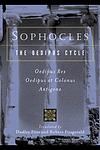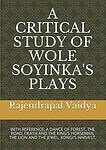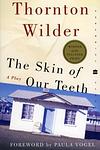The Greatest "Allegorical, Plays" Books of All Time
Click to learn how this list is calculated.
This list represents a comprehensive and trusted collection of the greatest books. Developed through a specialized algorithm, it brings together 300 'best of' book lists to form a definitive guide to the world's most acclaimed books. For those interested in how these books are chosen, additional details can be found on the rankings page.
Genres
Allegorical books are a genre of literature that use symbolic characters, events, and settings to convey a deeper meaning or message. These stories often have a moral or philosophical lesson that is meant to be interpreted by the reader. Allegories can be found in many different types of literature, including novels, short stories, and poetry. They are a powerful tool for exploring complex ideas and emotions, and can be used to comment on social, political, or religious issues. Overall, allegorical books are a thought-provoking and engaging genre that challenges readers to think critically and reflect on the world around them.
Plays are a category of literature that consists of written works intended for performance on stage. They typically feature dialogue between characters and are structured into acts and scenes. Plays can be comedic, tragic, or a combination of both, and often explore themes such as love, power, and morality. They are meant to be performed by actors in front of an audience, and can be enjoyed both as written works and as live performances.
Countries
Date Range
Reading Statistics
Click the button below to see how many of these books you've read!
Download
If you're interested in downloading this list as a CSV file for use in a spreadsheet application, you can easily do so by clicking the button below. Please note that to ensure a manageable file size and faster download, the CSV will include details for only the first 500 books.
Download-
1. Waiting for Godot by Samuel Beckett
"Waiting for Godot" is a play that explores themes of existentialism, despair, and the human condition through the story of two characters, Vladimir and Estragon, who wait endlessly for a man named Godot, who never arrives. While they wait, they engage in a variety of discussions and encounter three other characters. The play is characterized by its minimalistic setting and lack of a traditional plot, leaving much to interpretation.
-
2. Six Characters in Search of an Author by Luigi Pirandello
In this metatheatrical play, six characters come to life and demand that a theater director tell their tragic story, which was left incomplete by their author. As the director and his actors interact with these characters, the boundaries between fiction and reality blur, leading to a philosophical exploration of the nature of human identity, the reliability of art, and the unreliability of perception. The characters' story, involving a complex web of familial relationships, adultery, and suicide, further complicates the narrative, challenging the audience's understanding of truth and illusion.
-
3. Life Is a Dream by Pedro Calderón de la Barca
"Life is a Dream" is a philosophical allegory regarding the human situation and the mystery of life. The play follows the story of Segismundo, Prince of Poland, who has been imprisoned in a tower by his father, King Basilio, following a dire prophecy that the prince would bring disaster to the country and death to the King. Basilio briefly frees Segismundo but returns him to the tower when the prince proves violent and unruly. The story explores themes of free will, fate, power and the thin line that separates reality from dreams.
-
4. Rameau's Nephew by Denis Diderot
"Rameau's Nephew" is a philosophical dialogue that explores themes of morality, societal norms, and the nature of genius. The story revolves around a conversation between a philosopher and a character who is the nephew of a famous musician. The nephew, a freeloader and a parasite, defends his lifestyle by arguing that it is not only acceptable but also necessary in a society where wealth and power determine value. The dialogue delves into the contradictions and ironies of social conventions, challenging traditional notions of virtue, vice, and human nature.
-
5. The Resistible Rise of Arturo Ui by Bertolt Brecht
"The Resistible Rise of Arturo Ui" is a satirical play that uses the rise of a fictional 1930s Chicago mobster, Arturo Ui, to parallel the rise of Adolf Hitler in Nazi Germany. The narrative is a critique of those who allowed Hitler to come to power, emphasizing that his rise was indeed resistible. The play explores themes of power, corruption, manipulation, and the dangers of complacency, showcasing the destructive potential of unchecked ambition and the failure of society to prevent the ascent of dangerous individuals.
-
6. The Caucasian Chalk Circle by Bertolt Brecht
The play is a parable set in the Soviet Union that explores themes of justice, class struggle, and morality through the story of Grusha, a servant girl who risks her life to protect an abandoned child of noble birth during a time of revolution. As the child grows, a dispute over his custody arises, leading to a trial presided over by a wily, unconventional judge named Azdak. The trial's resolution hinges on the titular chalk circle test, which ultimately reveals the true nature of parental love and the importance of putting the needs of the child first. The narrative is a commentary on the social and political issues of the time, advocating for a society that prioritizes the welfare of its most vulnerable members.
-
7. Antigone by Jean Anouilh
The play is a modern adaptation of the classic Greek tragedy, which follows the story of Antigone, the daughter of Oedipus, as she defies the laws of the state to bury her brother Polynices, who has been declared a traitor and whose body has been condemned to remain unburied. Antigone's actions set her at odds with Creon, the ruler of Thebes, leading to a profound exploration of the conflict between individual conscience and state law, the role of fate, and the nature of morality. As Antigone's resolve leads her to tragic consequences, the play delves into themes of loyalty, honor, and the human cost of absolute power.
-
8. The Good Person of Szechwan by Bertolt Brecht
"The Good Person of Szechwan" is a parable play that explores the difficulty of maintaining one's morals and goodness in a corrupt and exploitative world. The story revolves around a kind-hearted prostitute who struggles to be a good person under the harsh realities of life in Szechwan. When three gods visit the city in search of a good person, they find only her willing to help them. However, to survive, she must adopt a ruthless alter ego, leading to a complex exploration of morality, identity, and societal pressures.
-
9. Everyman by Anonymous
"Everyman" is a morality play that explores the theme of Christian salvation and what Man must do to achieve it. The protagonist, Everyman, is a representation of all mankind, who is visited by Death and told he is about to die and face judgement. Unable to convince his friends and family to accompany him, Everyman turns to his good deeds, knowledge, and repentance. The play serves as a reminder of Christian moralities and the importance of good deeds for the afterlife.
-
10. Samson Agonistes by John Milton
The work is a dramatic poem that follows the final days of Samson, a once-mighty biblical hero who has been captured and blinded by his enemies, the Philistines. In his state of physical and spiritual anguish, Samson grapples with his past actions, his relationship with God, and his desire for vengeance. As he is brought out to entertain the Philistines in their temple, he ultimately finds strength in his faith, leading to a catastrophic act of destruction where he pulls down the temple pillars, killing himself along with his captors, and fulfilling his destiny as a tragic hero.
-
11. To Damascus by August Strindberg
"To Damascus" is a semi-autobiographical play that follows the spiritual journey of the protagonist, known as the Stranger, who embarks on a quest for meaning and redemption. Struggling with guilt, doubt, and a sense of existential despair, he encounters various symbolic characters, including the Confessor and the Lady, who represent different aspects of his psyche and philosophical challenges. The play delves into themes of faith, suffering, and the search for truth, as the Stranger's pilgrimage reflects the author's own introspective exploration of personal crisis and spiritual awakening. Set against the backdrop of turn-of-the-century Europe, the work is a complex blend of psychological drama and religious allegory, illustrating the profound inner conflicts and transformative experiences of its central figure.
-
12. The Lesson by Eugène Ionesco
"The Lesson" is a darkly comedic one-act play that explores themes of power, absurdity, and education. It revolves around a Professor who tutors a young, enthusiastic Pupil in preparation for a totalizing examination. As the lesson progresses, the initially benign academic session descends into a surreal and oppressive ordeal. The Professor's pedantic instruction becomes increasingly authoritarian and nonsensical, leading to a climax that exposes the dangers of indoctrination and the grotesque potential of authority figures to abuse their power. The play is a poignant critique of totalitarian systems and the absurdities inherent in dogmatic approaches to knowledge and learning.
-
13. Amédée by Eugène Ionesco
The play revolves around the bizarre situation of a couple living with the growing corpse of the husband's friend, Amédée, in their apartment. As the body inexplicably continues to expand, it causes increasing inconvenience and absurdity in their lives. The husband, a failed playwright, and his wife struggle with their mundane existence, their inability to dispose of the corpse, and the surreal events that unfold. The narrative explores themes of stagnation, guilt, and the absurdity of life, as the couple's surreal predicament serves as a metaphor for the inescapable, often grotesque, complexities of the human condition.
-
14. A Dance Of The Forest by Wole Soyinka
The book is a complex play that delves into the themes of identity, history, and the cyclical nature of human folly. It is set in an African village where the community is preparing for a festival to honor the return of their dead ancestors. As the living interact with the spirits of the past, the play reveals the characters' personal and political failings, reflecting on the post-colonial experience of African nations. Through a blend of myth, ritual, and satire, the narrative challenges the characters—and by extension, the audience—to confront their own complicity in societal issues, questioning the possibility of true progress and self-understanding.
-
15. The Skin Of Our Teeth by Thornton Wilder
"The Skin of Our Teeth" is a groundbreaking play that chronicles the enduring struggles and resilience of the human race through the allegorical story of the Antrobus family. Set in various eras of human history, the family confronts repeated catastrophes, including the Ice Age, a great flood, and a devastating war. With a blend of tragic and comic elements, the play employs a metatheatrical style, breaking the fourth wall and commenting on the nature of human existence. Through the cyclical trials and triumphs of the Antrobus family, the narrative emphasizes the persistence and adaptability of humanity in the face of constant challenges, encapsulating the spirit of survival against all odds.
Reading Statistics
Click the button below to see how many of these books you've read!
Download
If you're interested in downloading this list as a CSV file for use in a spreadsheet application, you can easily do so by clicking the button below. Please note that to ensure a manageable file size and faster download, the CSV will include details for only the first 500 books.
Download













